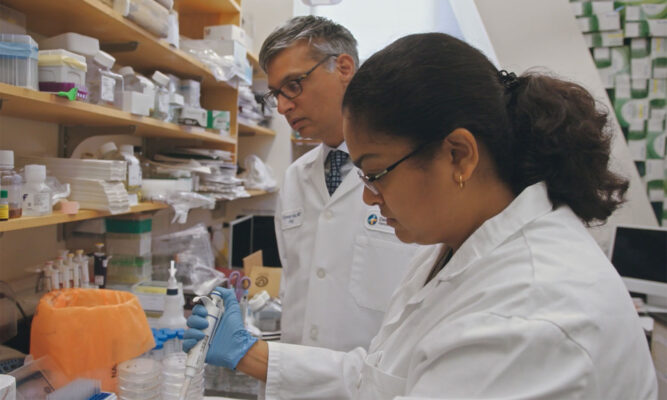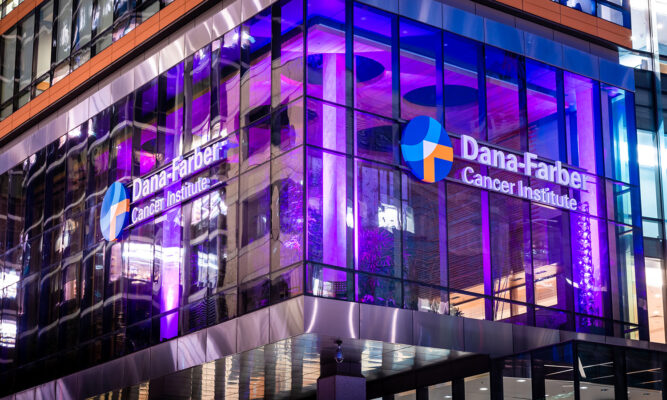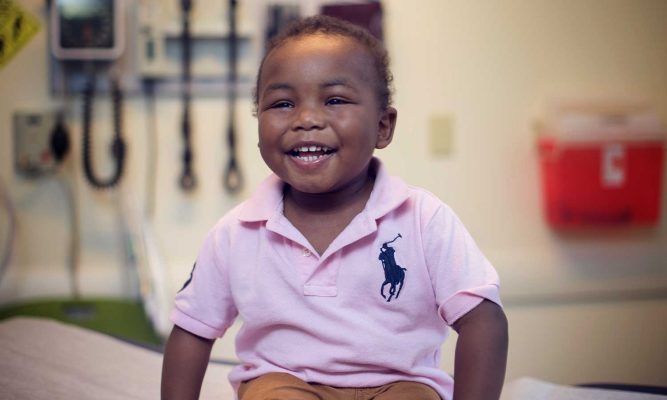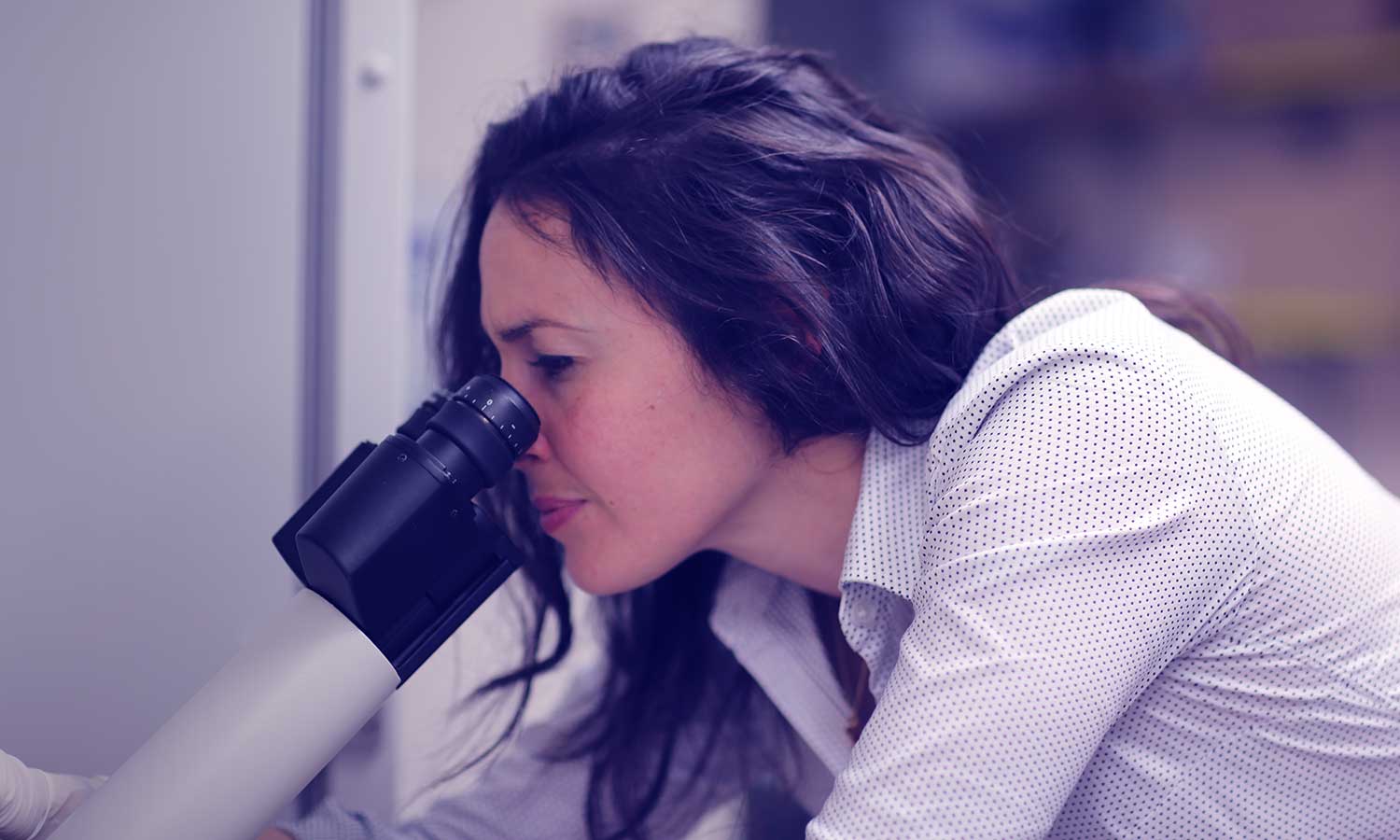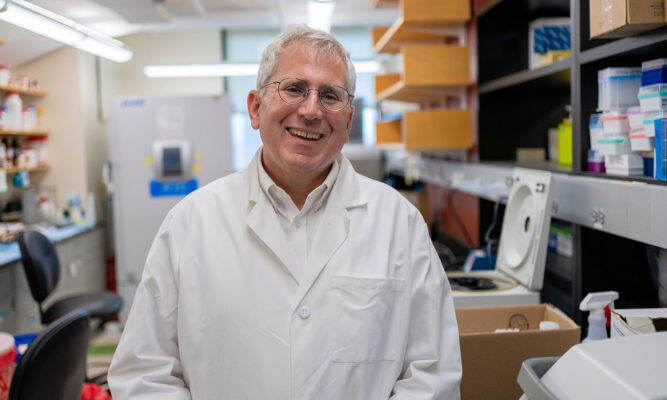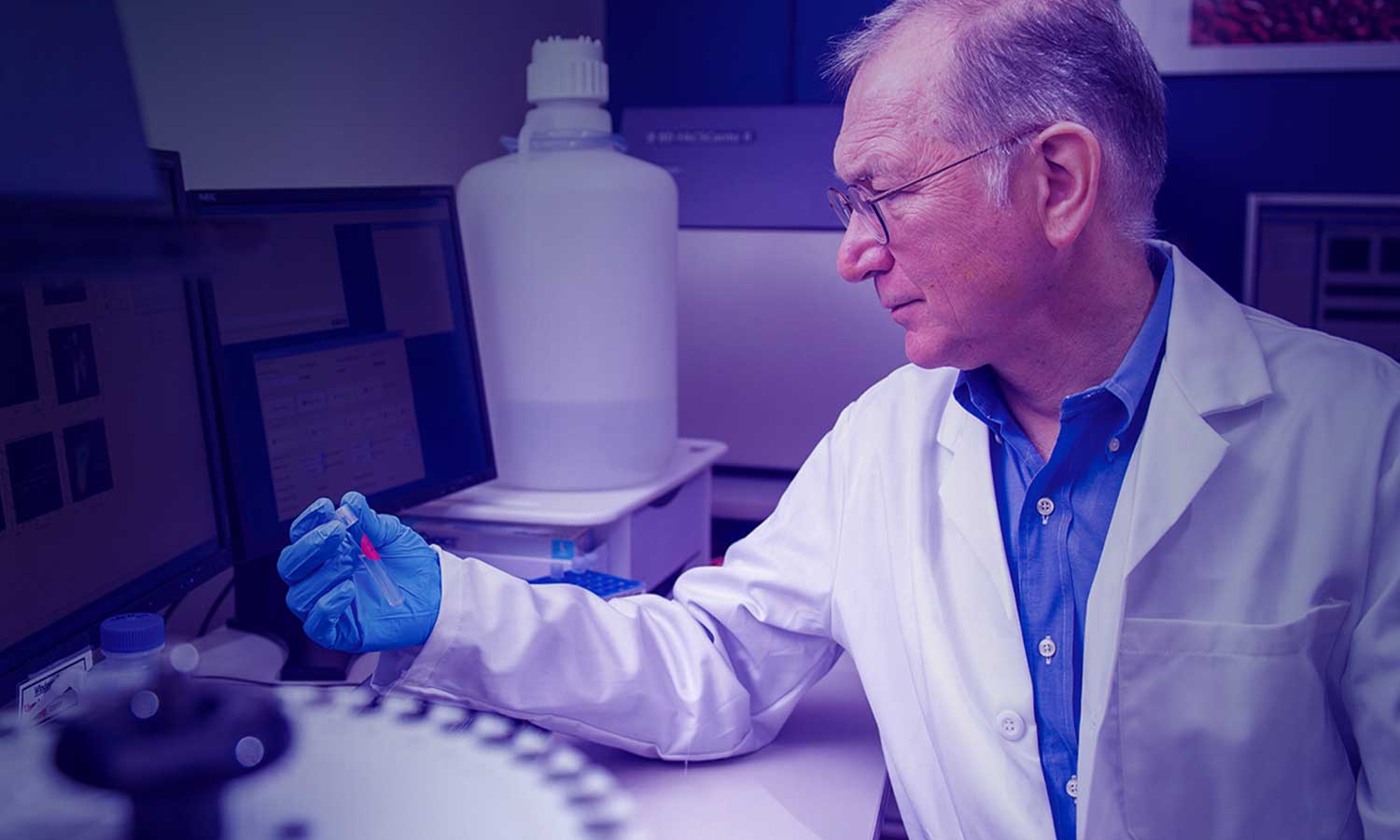Cancer Prevention, Early Detection, & Interception
We seek to create a new discipline that will forever change the impact of cancer. Support through The Dana-Farber Campaign will allow us to re-imagine cancer care and stop cancer before it starts through cancer prevention, early detection, and interception. In so doing, Dana-Farber will become the preeminent institution for early detection and interception. Dana-Farber has been a leader in cancer prevention and early detection for decades. Our scientists have made groundbreaking discoveries about inherited syndromes that changed the standard of care. We are leading the discovery of precursor conditions associated with cancer development, and we are now able to...
We seek to create a new discipline that will forever change the impact of cancer. Support through The Dana-Farber Campaign will allow us to re-imagine cancer care and stop cancer before it starts through cancer prevention, early detection, and interception. In so doing, Dana-Farber will become the preeminent institution for early detection and interception.
Dana-Farber has been a leader in cancer prevention and early detection for decades. Our scientists have made groundbreaking discoveries about inherited syndromes that changed the standard of care. We are leading the discovery of precursor conditions associated with cancer development, and we are now able to assess risk, detect cancers earlier, and apply interventions better than ever before.
But we have a long way to go. We want to transform cancer care and reach millions of at-risk people, changing their lives through improved screening, early detection, and intercepting disease before it develops or advances.
Gifts to The Dana-Farber Campaign will allow us to:
- Create a fully integrated clinical and research program that defines the field of early cancer detection and interception
- Unify and build on Dana-Farber’s world-leading work in early detection, prevention, and interception
- Develop personalized screening and prevention plans based on an individual’s genomic profile and lifestyle factors.
- Identify substantial new cohorts of at-risk individuals and creating new precision intervention strategies for them
- Detect new and recurring cancers at their earliest stages through novel technologies
Together, we can change cancer care from reactive to proactive and change lives around the world.
For more information or questions, please contact Kate Hall.





